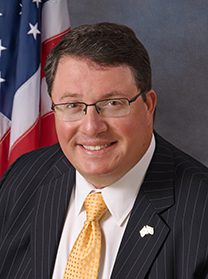Florida Atlantic University faculty members have more questions about the proposed dental school that has assumed a major role in the presidential search.
Last week, a Faculty Senate committee asked Senate President Kim Dunn to forward its concerns to the full body and to the board of trustees. As president, Dunn serves on the board. She also is on the presidential search committee.
Dunn said the committee worries about financing for the dental school and its overall “viability.” Another problem is that FAU is supposed to hire a dental school dean by the fall of 2024, but there is no permanent university president, no permanent provost and no permanent medical school dean.
As I reported, the school would cost almost $90 million to build. According to the proposal FAU sent to the Board of Governors, 293 students would be attending in the school’s fifth year, with operating costs hitting nearly $38 million.
The Board of Governors previously rejected proposals from the University of Central Florida and Florida A&M University before approving FAU’s a year ago. The board did so even though surveys showed a greater need for dentists in the central and northern parts of the state.
Last spring, the Legislature approved $30 million toward construction of the school and $10 million for operating expenses. Though FAU has submitted another request for money during next year’s session, faculty members clearly worry that the school could be a drain on the university’s overall finances while being of questionable need.
But the school is a priority for Barbara Feingold, vice chair of the trustees. She has all but claimed that she would donate another $30 million, with FAU naming the school after her late husband, Jeffrey Feingold. He served on the board of trustees until his death in 2019.
During the trustees’ August meeting, Feingold criticized Chair Brad Levine for defending the search that State University System Chancellor Ray Rodrigues halted on July 7. The search committee did not make State Rep. Randy Fine, R-Palm Bay, a finalist. Feingold said she didn’t support any of the three finalists, leaving the impression that she backed Fine, who at the time was Gov. DeSantis’ preferred candidate. Feingold said the choice of a president could affect her donation. DeSantis said last week that Fine won’t get the job.
There was little discussion among the trustees when they approved the dental school request to the Board of Governors. At the time, though, Levine and Feingold were not at odds.
In this new atmosphere, several factors could kill the school. The Legislature could send money elsewhere. The trustees could decide that FAU now has higher priorities. The Faculty Senate could fail to approve the curriculum.
After that Monday meeting of the Faculty Senate, the next key date for FAU is a week from Wednesday. At its meeting, the Board of Governors likely will hear the results of the investigation into the search that Rodrigues ordered.
Randy Fine on FAU presidency
Fine got national attention last week after announcing that he was switching his support for the Republican presidential nomination from DeSantis to Donald Trump. None of the national stories mentioned the FAU subplot.

Fine discussed the FAU job in an interview with the South Florida Sun Sentinel. Addressing the opposition among faculty members, Fine said, “The community didn’t want me. I don’t think it has anything to do with me. I think they don’t want a conservative non-academic.”
From everything I’ve heard, that opposition had much to do with Fine himself and his apparent willingness to turn FAU into a much larger New College. DeSantis appointees have taken over that campus and pledged a right-wing curriculum. Faculty and students have left in large numbers.
So why did DeSantis favor Fine? “I think they also thought that because I was Jewish, you know, it’s FAU and it’s Boca, that it would be a good fit for the university and a good fit for me personally. If I wasn’t Jewish, I don’t think they would have called.” This comment came as Fine criticized DeSantis for not publicity criticizing anti-Semitic displays in Florida.
More additions to Delray’s election ballot

Delray Beach’s election got more crowded last week. It also got more interesting.
Three candidates have joined the field for the March 19 vote that will decide the city’s next mayor and fill two open seats on the city commission. One of those candidates is Juli Casale, who seven months ago lost her Seat 2 race to Rob Long.
This time, Casale has filed to run in Seat 3. She joins Anneze Barthelemy and Nicholas Coppola. And her strategy seems clear.

Casale is aligned with Mayor Shelly Petrolia, who must leave office in March because of term limits. Barthelemy and Coppola are in the anti-Petrolia faction that defeated Casale and Angie Gray, who lost the Seat 4 race to Angela Burns.
Despite those results, the Petrolia bloc remains potentially influential in a multi-candidate race. Barthelemy and Coppola could split the anti-Petrolia vote and allow Casale to win with far less than 50 percent. Casale did not file until last week, supporting the idea that she got in after seeing how the field would line up.
Another likely Petrolia ally is Tom Carney, who filed to run for mayor against current Commissioner Ryan Boylston and former Commissioner Shirley Johnson. Carney served on the commission from 2011 to 2013, the last part of that as acting mayor when the incumbent resigned early.
Carney lost mayoral runs in 2013 and 2015 to Cary Glickstein. Since that second defeat, he has had little civic involvement. Notably, he did not join other former mayors in signing a letter opposing the vote by Petrolia, Johnson and Casale to end the Old School Square lease. Petrolia campaigned against Boylston in 2021.
The third new candidate is Thomas Markert. Unlike Casale and Carney, he is not a familiar face. He lived west of Delray Beach in Mizner Country Club before moving into the city nearly three years ago. Markert said he served for about a year on the police advisory board.
After a long career as a corporate executive, Markert said, he became president of InfraGard. Its website says the non-profit “connects owners and operators within critical infrastructure” with federal agencies to protect against “emerging technologies and threats.”
Markert said, “I’ve always loved Delray, and now I have the time” to serve on the commission. The other candidates in Seat 1 are former Commissioner Jim Chard and Tennille DeCoste, a former human resources director for the city.
The unexpected votes that saved the Ag Reserve

As I wrote last week, two Palm Beach County Commissioners flipped earlier votes to kill a proposed land swap by GL Homes to build 1,000 luxury homes in the county’s Agricultural Reserve Area. The surprise switches made people wonder why Mack Bernard and Gregg Weiss changed from their votes last May that gave the deal preliminary approval.
I’m told that Bernard informed GL executives before Tuesday’s meeting of his new position. Bernard had expressed skepticism five months ago but said he wanted to hear comment from state planners. Bernard reportedly was upset with what he considered GL’s lack of interest in workforce housing—a Bernard priority—despite the company’s pledge to build 277 workforce near those high-end homes northwest of Boca Raton.
Bernard and Weiss are Democrats. The county’s Democratic Party turned out to oppose the swap. Weiss offered no detailed reason for casting the swing vote at the end of the hearing, but he reportedly wants to run for mayor of West Palm Beach when the seat comes open in 2027. The city leans Democratic. The party had not involved itself when the swap came to the commission in May.
Delray’s new government complex

During their Oct. 10 meeting, Delray Beach city commissioners heard much of what they wanted to hear about the county government complex on Congress Avenue that the city would like redeveloped. They also heard that redevelopment will take some time.
County officials agree with Delray Beach that the site, near the Tri-Rail station, offers promise. In August, the county commission chose a master plan that would combine rebuilt county offices with private development on about 10 acres. Some of that could be housing designed to attract regular Tri-Rail commuters.
The county plans to use revenue from the 2016 sales-tax surcharge for some of the project. But the total cost is estimated at roughly $200 million. Nevertheless, the county’s facilities director sounded reasonably optimistic that the city’s preferred transformation could take place.
Boylston has championed redevelopment. He told me Monday that if he served the maximum six years as mayor that it would be “realistic” to envision a groundbreaking on the Congress Avenue site before he left office.







